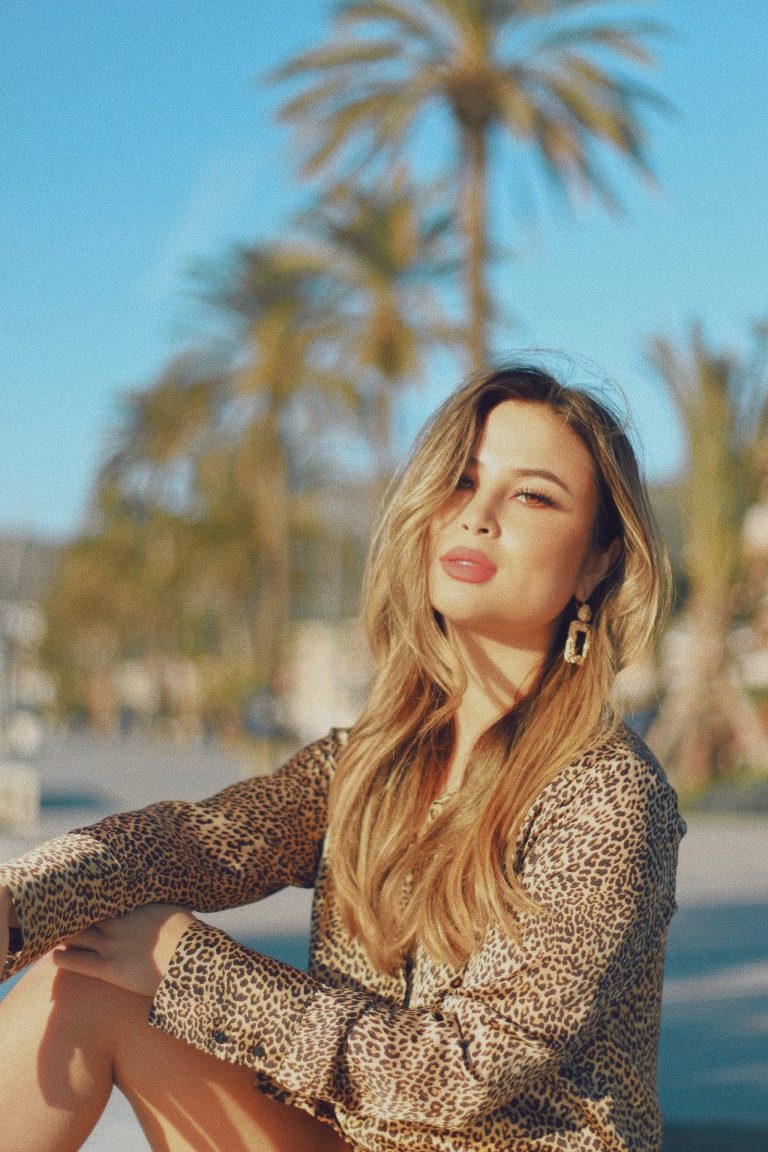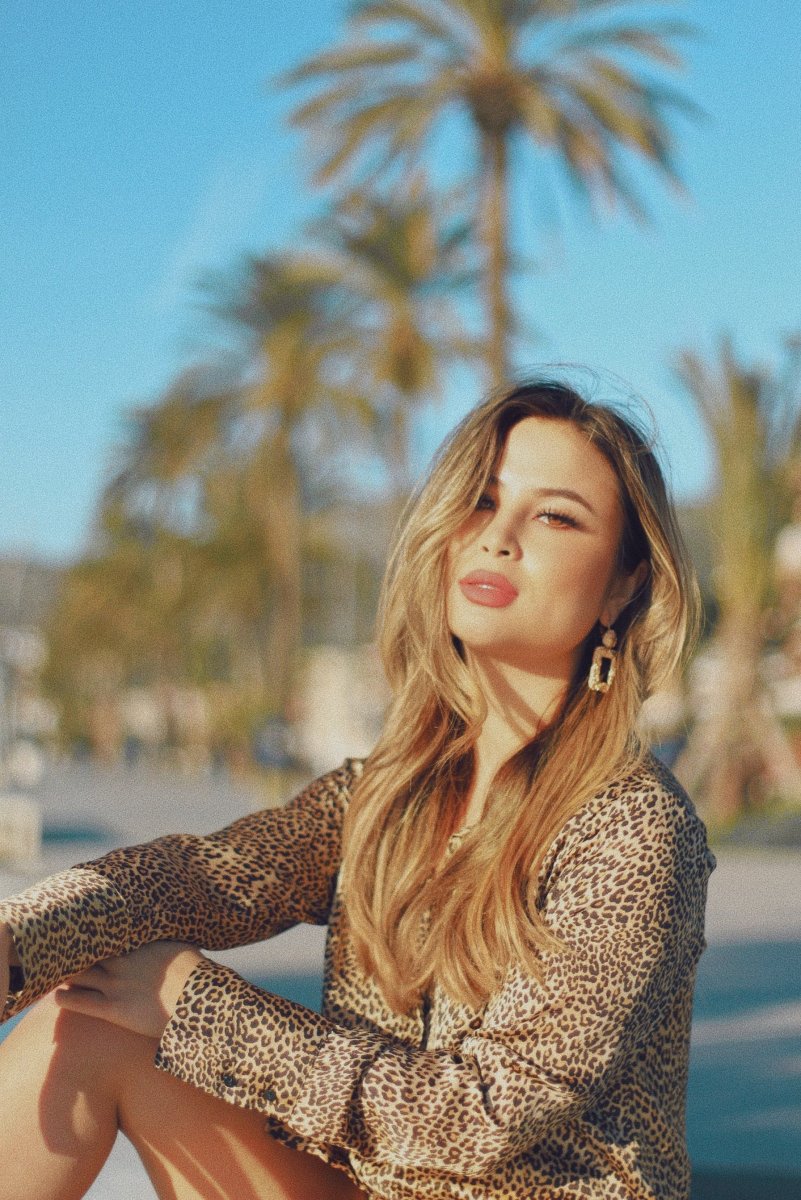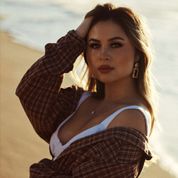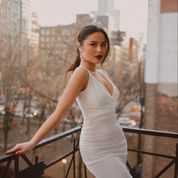NYC artist Tigerlily, originally from Seattle, has been singing since she was a child and noticed she first had the pipes when the Wii Rock Band came out “I remember the first song I attempted was Soundgarden’s “Black Hole Sun” and I got 100% and I was like huh, well looks like I’m a singer!”
The Asian American grew up on a healthy dose of grunge, alternative, and indie rock music growing up in Seattle area, but her love for pop music never left her. Modern Frequency sat down with the budding pop star to talk her roots, growing up in Seattle, and meeting Krist Noveselic.
You grew up in Seattle to immigrant parents. Were they supportive of your singing career?
My parents were actually both born in the US but my grandparents immigrated here. My family has always loved that I do music. My dad would try and distract me from doing homework to watch concert footage so I grew up watching old concerts from Prince, The Who, The Ronettes, Johnny Cash. When I was in the band, which was with my sister and cousin, my aunt used to sew our concert outfits, my uncle produced our first record, my mom booked all the shows, and every other family member was a roadie I guess, so yeah, they’ve been beyond supportive.
How important is it to you that Asian Americans have a fair shot in the music industry?
It’s really important to me that Asian Americans have greater representation in the music industry. And it’s not just the music industry; in general, Asian Americans are hardly visible across the US entertainment industry. I didn’t grow up watching foreign films, so the first time I saw two Asian people kiss on screen was watching Crazy Rich Asians and I remember feeling really uneasy about it and being like, what’s wrong with you! You’re Asian! And I realized it was just weird for me since I’d never seen that before.
I do think society has been changing recently to become more inclusive. In the past few years, we saw Victoria’s Secret cast their first openly transgender model, Valentina Sampaio, we saw Awkwafina become the first Asian actress to win a Golden Globe for lead actress in a movie, and, hey, I’d love to see the first Asian American to headline Coachella in the coming years.
When people ask me about my music career, I tell them I’m doing this for me, of course, but I’m also doing it for the younger me and all the other Asian-American kids who grow up subconsciously believing that being a successful artist isn’t for them since they don’t see anyone who looks like them; who grow up not being proud of their Asian heritage. I want Asian-American girls to see me one day and believe they can be a popstar if they want, they can be a rockstar, they can be whoever they dream to be.
Kesha is the only one who prominently spoke up about sexual abuse in the music industry. How difficult is it to be surrounded by men in the music industry that is mostly led by female singers nowadays?
That’s a good question, I’ll give you two answers to it, one more technical and one more personal.
When I was in business school I spent two years writing a thesis on “An Analysis of the Billboard Hot 100 Through the Lens of Artist Gender.” What I concluded was, while the hit songs performed by male and female artists are not all that different compositionally, there remain major differences in the representation of female artists versus male artists in today’s music industry, and in the limitations which male and female artists face in
terms of who they can be, or portray themselves as, and find commercial success. One of the studies I referenced was done by USC Annenberg which looked at 700 popular songs from 2012 to 2018. They found that across 700 songs, women represented only 21.7% of all artists, that only 9.3% of GRAMMY nominees from 2013 to 2018 were female. So clearly, major inequalities remain.
The reason I got interested in studying that in the first place was my personal experience as a female musician. There are so many anecdotes I could give you, but I’ll keep it to one. When I was in high school, my band got into the largest battle of the bands in the Pacific Northwest. We made it to finals and the judge’s feedback was basically just about our appearances. I was onstage doing guitar solos, singing, playing bass and piano, yet people still only wanted to talk about ‘how cute’ I am. Like yes, I’m cute, yes, I have a pretty voice, but I also play four instruments, write all my own music, and managed myself since I was 15 years old, and I’m much prouder of that.
You worked with producers Nima Skeemz and Elan Wright, who have also worked with Macklemore. What did you pull from that experience?
They’re brilliant producers. I mostly worked with Nima, who I had met years before when I was in high school singing on Travis Thompson’s tracks at their studio. Working with them was so different than working with the producers I had worked with in the past since it was really collaborative. I’d play them the song I’d written on guitar or piano and by the end of the session we’d have created something completely new. It was also just hilarious the back and forth between Nima and I; I’m someone who has a lot of opinions about how I want my songs to sound but doesn’t know a lot about the technicals of producing so I’d say things like, “can you add a sound that sounds like the northern lights rustling in the wind” and he’d be like, “what are you talking about?” but eventually we’d figure it out and it’d sound great, haha.
You successfully made the switch from rock to pop. Is rock music something you wanted to steer away from?
I wouldn’t say it was something I wanted to steer away from as much as pop was something I wanted to explore. Growing up in Seattle, I was surrounded by rock and indie music. Chris Cornell’s daughter is a friend of mine, Dave Matthews was always hanging out at the coffee shop by my house, my band opened for Duff Mckagan’s daughter’s band. And I loved that world and being the frontwoman of a rock band, but I had been doing that since middle school so I wanted to try something new. I remember my first show as a solo artist, I was so used to performing with an electric guitar in front of me that I ended up dancing like crazy since I had no clue what to do with my hands. I realized that if I’m not going to be guitar soloing while I sing, I better learn to dance!
You have a team of all minority women behind you. How can we keep the conversation going about Black Lives Matters?
I think about that all the time. There are so many ways to keep that conversation going and I think it’s up to each of us to consider how we are uniquely equipped to use our privilege to best do that. For me as an artist, it’s been highlighting Black artists by covering their songs and using my platform to speak out about what’s happening. I also decided to turn my single release concert into a benefit concert on IG Live to support Black Trans Woman and all of the donations are going to the Marsha P Johnson Institute. I think for writers, it’s showcasing BIPOC artists, so I’m grateful you’re taking the time to interview me today!
Something all of this has made me realize is it’s not enough to not be racist, you must actively be anti-racist. There were times the past few weeks where I was drained from posting about what was happening and fighting the backlash from people who didn’t like it, but I told myself I had an ethical duty to not stop. There were times I was having conversations about social justice with my manager Maya, and something would come up I wasn’t informed about and I realized that it wasn’t an excuse to zone out and that I better go read a book on it or watch a documentary. There were times I got into fights with friends who didn’t agree with the protests and I couldn’t just let it go because I knew their indifference was really going to hurt Black people. Ultimately, keeping the conversation going will require a lot of effort from organizations and individuals to be actively anti-racist and re-evaluate their status quo to make fundamental changes in how Black people are treated in this world.
You lived abroad and went to Fordham for school and never was sidetracked from your first dream. What inspired you to continue on your musical journey?
Yeah, honestly it’s always been really hard not getting sidetracked — not because I had all these other things I wanted to do, but because being an artist is hard and there were plenty of times I was like maybe I should take the easy way out and stay in Barcelona, get any old job, and eat paella on the beach. Being an artist is hard in part because it’s hard to make it, but also because chasing your dreams is always hard because you really care. So for me, going to business school was like a four-year recharge, but I always knew at the end of it I was going to have to get back in the ring and fight for what’s always been my dream.
You performed in front of Krist Noveselic of Nirvana. How did that happen?
Yeah, I’m a Seattle girl at heart and Nirvana was always my favorite band so that was really the coolest thing ever. Every year, Seattle’s Museum of Pop Culture, MoPop (which was called the EMP at the time), would throw a concert to honor an artist who had made outstanding contributions in popular music. That year, they were honoring Jackson Browne and they chose me to be the singer in the band performing and Krist Noveselic was there in the front. I mean, Jackson Browne is iconic, but as soon as we finished our set, I beelined straight to Krist Noveselic!
CONNECT WITH TIGERLILY:





